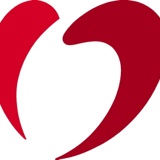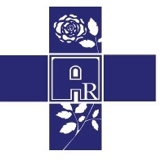Information
-
Audit Title
-
Document No.
-
Client / Site
-
Conducted on
-
Prepared by
-
Location
-
Personnel
A. SAFETY/GENERAL SAFETY
-
Warning signs or barricades are placed when work creates a hazard (wet floor, maintenance work in ceiling)?
-
All furniture and equipment is in sound condition? (no chipped or torn surfaces- no leaky faucets)
-
All wall-mounted devices (lights, TV’s, pictures, signs, containers, handrails, etc.) are secure and not loose?
-
Area is without clutter
-
Quality Control logs for Refrigerators/Freezers, freezers, and warmers are complete and corrective actions documented as appropriate?
B. ELECTRICAL SAFETY
-
No evidence of daisy chains
-
Items are not stored within 36" of an electrical panel?
-
Electrical cords, plugs, plates and switches are in good repair?
-
Extension cords only used temporarily but not on a permanent everyday basis?
-
The underside of beds and counters are free of electrical “wire nests” where feet could be entangled?
C. MEDICATION/MEDICAL SUPPLIES
-
Medications/medical supplies - have not passed expiration dates?
-
All syringes, basins, cups, containing medication or solutions are labeled with the name of the contents?
-
Supply area is clean?
-
Med Carts/Med Rooms are secured at all times?
-
Black boxes have been emptied and are not overflowing.
-
Samples are tracked per policy?
-
No boxes on the floor. All supplies 6 inched off the floor?
-
No items stored under the sink
D. INFECTION PREVENTION
-
Staff food is not stored in patient refrigerators?
-
Refrigerators/Freezers are clean, frost free, and labeled for type of storage with only those items present (no food and medication in the same refrigerator).
-
Refrigerators/Freezers contain thermometers and the refrigerator graphs are up-to-date? (thermometer should be located in the back)
-
No open or expired patient nourishment containers in refrigerator?
-
Ice machines are clean, no signs of deposits in tray or dispensing mechanism?
-
Anti-microbial soap and paper towels are available for hand washing?
-
Containers used for regulated or infectious waste are covered, leak proof, and clearly labeled as a biohazard?
-
Disposed sharps are in an approved container?
-
Sharps containers are secured in their holders, not accessible to residents and not more than three-fourths full?
-
Staff (including contracting physicians) perform hand hygiene?
-
Separation of clean and dirty?
E. ENVIRONMENTAL
-
Ceiling tiles clean and intact?
-
Floors free of dirt, dust and litter?
-
Ledges, walls and air vents free of dust?
-
Toilets and sinks secure and clean?
-
Privacy curtains clean and unsoiled?
-
Cove base is secured?
F. HAZARDOUS MATERIALS
-
Chemicals are properly labeled and secured?
-
How can you access Material Safety Data Sheets (MSDS)?
-
PPE is available?
-
Material Safety Data Sheets stickers are intact on phones?
-
Eye wash is flushed and logged?
-
Acids and bases stored separately?
-
Fume hoods have been certified?
G. FIRE PREVENTION/ LIFE SAFETY
-
Can you explain P.A.S.S. and what it stand for?
-
Staff know where the fire extinguishers and pull stations located in your department?
-
Confidential shred bins are compliant with NFPA Code
-
Halls/Corridors uncluttered and accessible?
-
Smoke detectors with 36" clearance from air supply to return?
-
Are the sprinkler heads free of dust?
-
Fire extinguisher (s) recently serviced? (monthly)
-
Automatic fire doors free from obstacles and positively latch when activated? (Doorways should not be blocked or wedged.)
-
Eighteen-inch clearance from ceiling is maintained?
-
Are compressed gases stored in designated areas only and secured?
-
Are med gas valves labeled?
-
Are full and empty cylinders stored separately according to sign/labels?
-
All lights are working properly and flashlights with good batteries?
-
Flammable and hazardous materials properly stored and labeled?
-
Fire extinguishers and pull stations clear of obstructions?
-
Placement of Hand Sanitizer is not adjacent(with-in 6”) to a potential ignition source?
-
Egress path is clear of obstructions?
-
Soiled trash/linen carts do not exceed 32 gallons in a 64 sq. ft. area?
H. EMERGENCY MANAGEMENT PROCEDURES
-
Staff know the number to call to initiate an emergency response?
I. SECURITY MANAGEMENT
-
Staff know how to notify Security in a non-emergency?
-
Employees, volunteers, students, contracted staff, physicians, contractors and venders wearing ID badges?
J. EQUIPMENT MANAGEMENT
-
Staff know the procedures if a device/equipment does not work properly?
-
All medical equipment/devices has a current Bio-Medical sticker?
-
Equipment is clean?
-
Crash cart is locked, logs complete, oxygen is full?
-
Defibrillator is plugged in and charging?
K. UTILITY MANAGEMENT
-
Staff know what to do for a utility failure?
-
Staff know who is authorized to shut off medical gases?
-
Is correct air pressure maintained in critical environments? (Decontamination, soiled utility, scope rooms, etc.) per FGI 2010 guidelines.
OR specific
-
Hyperthermia cart is locked with log completed?
-
Staff know location of hyperthermia cart?
-
Sterilizer is clean and parameters are maintained?
-
Sterilizer has documented PM?
-
Sterilizer testing is up to date?
-
Temperature and humidity levels are checked daily. Temperature should not be lower than 68 and humidity cannot exceed 60%. Per FGI 2010 guidelines.
Mechanical areas
-
Floor is clean?
-
Power tools have guards in place?
-
PPE readily available?
-
36" clearance maintained around electric panels?
-
Fall protection for areas above 6 feet high?
-
LOTO equipment readily available?
-
Isolation exhaust fans are labeled?
Actions
-
Preventive action is required?
-
Preventive Action Plan:
-
Corrective action is required?
-
Cause of nonconformity
-
Organizational corrective plan:
-
Person/position responsible for implementation do corrective action
-
Date for implementation of Plan
-
Determine actions needed by observing:
-
Results of. Actions taken:
-
Review effectiveness
SIGN OFF
-
Department/Unit Representative
-
Auditor








